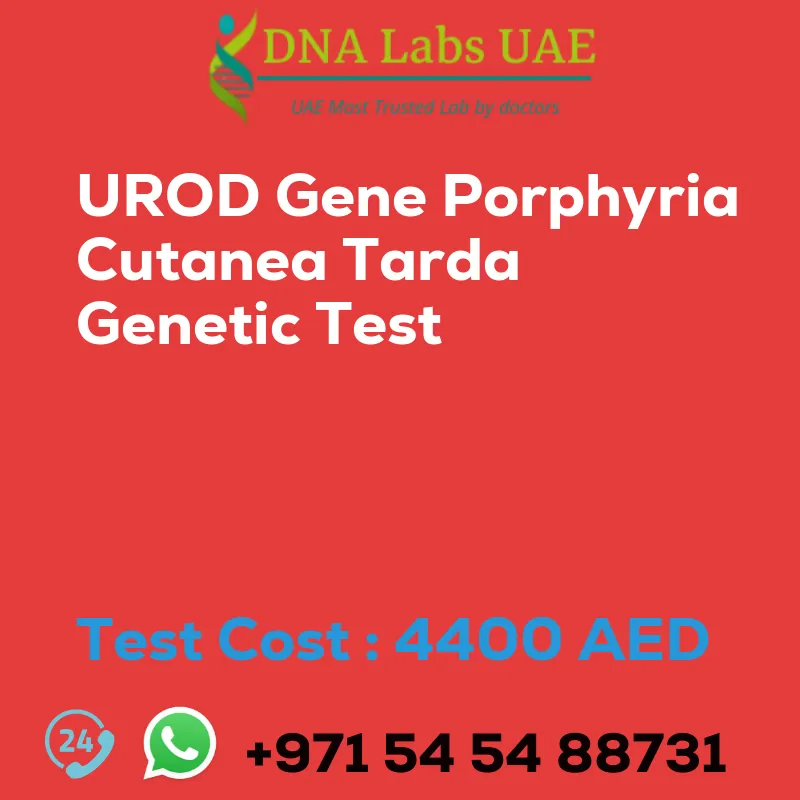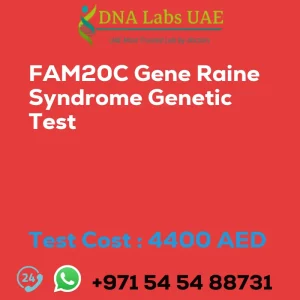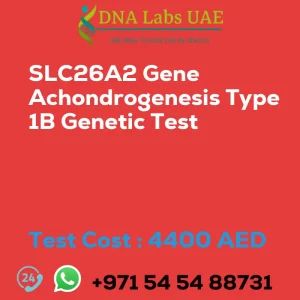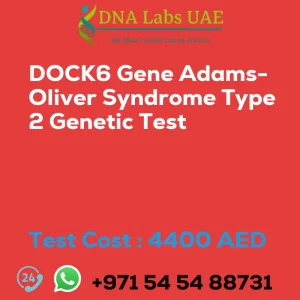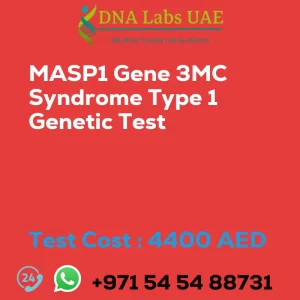UROD Gene Porphyria Cutanea Tarda Genetic Test
Are you or a family member experiencing sensitivity to sunlight, blistering, and scarring on the skin? These symptoms could be indicative of porphyria cutanea tarda (PCT), a genetic condition associated with the UROD gene. DNA Labs UAE offers a comprehensive UROD Gene Porphyria Cutanea Tarda Genetic Test to help diagnose and manage this condition.
Test Details
The UROD gene is specifically linked to porphyria cutanea tarda (PCT), a type of porphyria that affects the skin. Our Next-Generation Sequencing (NGS) technology allows us to analyze the DNA sequence of your genes, specifically targeting the UROD gene. By identifying any mutations or variations in this gene, we can determine if it is responsible for causing PCT.
This information is crucial for confirming a clinical diagnosis, understanding the inheritance pattern of the condition, and providing guidance for genetic counseling and disease management. Our specialized laboratory and genetic testing center ensure accurate and reliable results.
Test Components and Price
The UROD Gene Porphyria Cutanea Tarda Genetic Test is priced at 4400.0 AED. This cost includes the analysis of your DNA sample, which can be obtained from blood, extracted DNA, or one drop of blood on an FTA card.
Report Delivery and Test Duration
After submitting your sample, you can expect your test results within 3 to 4 weeks. Our team will analyze the DNA sequence of your UROD gene using NGS technology and provide a detailed report with the findings.
Pre-Test Information
Prior to undergoing the UROD Gene Porphyria Cutanea Tarda Genetic Test, it is important to provide us with the clinical history of the patient. Additionally, a genetic counseling session will be conducted to draw a pedigree chart of family members affected by the UROD gene. This information helps us better understand the genetic context of your condition.
Test Department and Doctor
The UROD Gene Porphyria Cutanea Tarda Genetic Test is conducted by our Genetics department, overseen by a Dermatologist. Our experienced team ensures accurate analysis and interpretation of your test results.
If you suspect you or a family member may have porphyria cutanea tarda, don’t hesitate to reach out to us. Our UROD Gene Porphyria Cutanea Tarda Genetic Test can provide valuable insights into your condition, allowing for appropriate management and genetic counseling.
| Test Name | UROD Gene Porphyria cutanea tarda Genetic Test |
|---|---|
| Components | |
| Price | 4400.0 AED |
| Sample Condition | Blood or Extracted DNA or One drop Blood on FTA Card |
| Report Delivery | 3 to 4 Weeks |
| Method | NGS Technology |
| Test type | Osteology Dermatology Immunology Disorders |
| Doctor | Dermatologist |
| Test Department: | Genetics |
| Pre Test Information | Clinical History of Patient who is going for UROD Gene Porphyria cutanea tarda NGS Genetic DNA Test. A Genetic Counselling session to draw a pedigree chart of family members affected with UROD Gene Porphyria cutanea tarda NGS Genetic DNA Test gene UROD |
| Test Details |
The UROD gene is associated with the condition known as porphyria cutanea tarda (PCT). PCT is a type of porphyria that affects the skin, leading to sensitivity to sunlight, blistering, and scarring. NGS (Next-Generation Sequencing) genetic testing is a method used to analyze the DNA sequence of an individual’s genes. In the context of porphyria cutanea tarda, NGS genetic testing can be used to identify mutations or variations in the UROD gene that may be responsible for causing the condition. By analyzing the DNA sequence of the UROD gene, NGS testing can help diagnose porphyria cutanea tarda and determine the specific genetic cause. This information can be useful for confirming a clinical diagnosis, understanding the inheritance pattern of the condition, and providing guidance for genetic counseling and management of the disease. It’s important to note that NGS genetic testing for porphyria cutanea tarda is typically performed in specialized laboratories or genetic testing centers, and the test may require a healthcare provider’s order. The results of the test should be interpreted by a healthcare professional with expertise in genetic testing and porphyria. |

